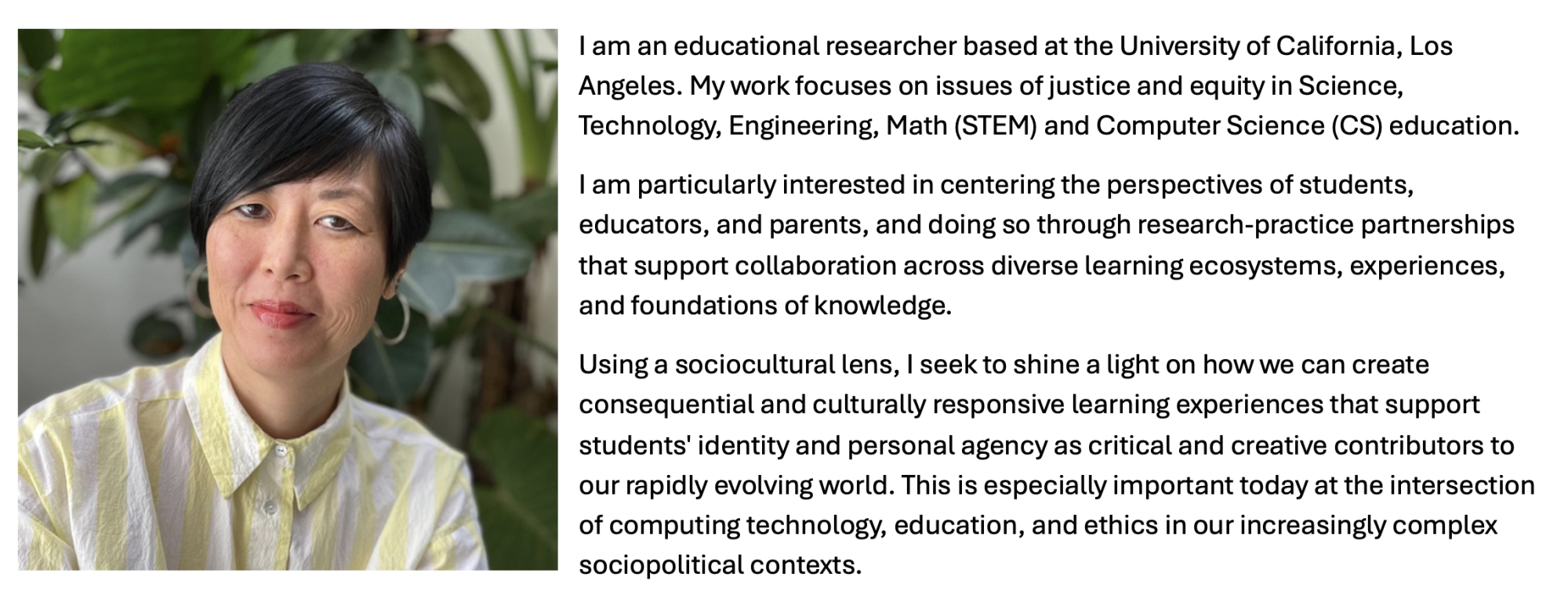Amplifying Social Impacts of Computing Standards (ASICS) Initiative
Co-Principal Investigator; Computer Science Teachers Association, Michigan State University, Telos Learning, and University of California, Los Angeles
Funded by: Kapor Foundation
As the nefarious impacts of computing – apparent in racist and sexist Artificial Intelligence tools, biased computing algorithms, etc. – continue to surface in our rapidly evolving technological world, it has become ever more apparent that education systems play a central role in building the knowledge, skills, and dispositions necessary for students to critically and ethically analyze if and how emerging technologies can serve the public good. Towards such ends, this project involves a field and knowledge building initiative to inform and support the Computer Science Teachers Association in writing and implementing new K12 Computer Science Education Standards (due out in 2026) that center issues of ethics and social impacts.
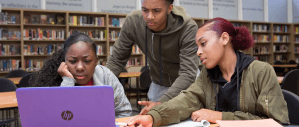
Student Perspectives: Identity and agency with socially responsible computing and Artificial Intelligence in Girls Who Code
Director of Research & Co-Principal Investigator; University of California, Los Angeles; in collaboration with Girls Who Code
Funded by: Stuart Foundation
These projects focus on adolescents’ experiences and perspectives, and specifically young people from communities historically underrepresented in the field of computing (such as young women, nonbinary students, and low-income students of color). We seek to understand how young people define their identities and sense of agency around issues of ethics and social responsibility with computing, especially in light of new innovations with Artificial Intelligence.
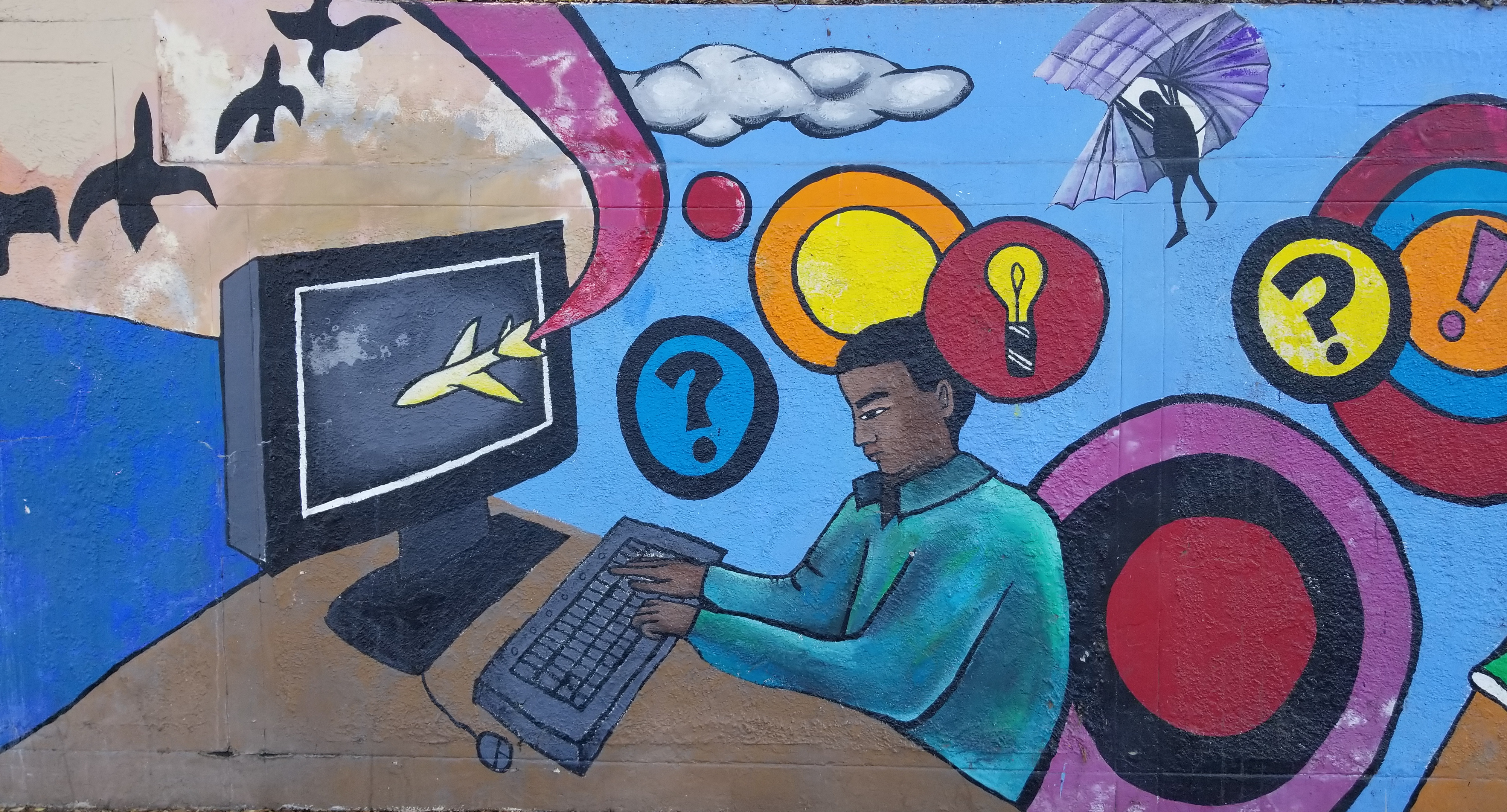
Plugging into Power – Family and community engagement for equitable computer science education
Director of Research & Co-Principal Investigator; University of California, Los Angeles
Funded by: Siegel Family Endowment, Google.org
This project involves learning from and with parents and caregivers about what families want and need of an equity-centered, meaningful, computing education in K12 public schools. Through research and collaboration with parents (surfacing their experiences, perspectives, and goals for computing education) we have co-created a parent advocacy toolkit (see here) for use across California and the United States that can put pressure on the system to improve education for all. In our next phase of work we are co-creating parent workshops (created with parents, for parents, and led by parents!) to ensure all students have access to computing and AI education that centers their personal interests, community needs, and ethics.
To learn more, please visit this website.

“Computing-Integrated Teacher Education (CITE)” Project – The City University of New York (CUNY) + Telos Learning
Researcher
Funded by: Robin Hood Foundation Learning + Technology Fund; Google; Gotham Gives; Siegel Family Endowment
This project supports CUNY teacher education programs to prepare educators to equitably and meaningfully integrate computing and digital literacies into public school education.
To learn more, please visit this website.
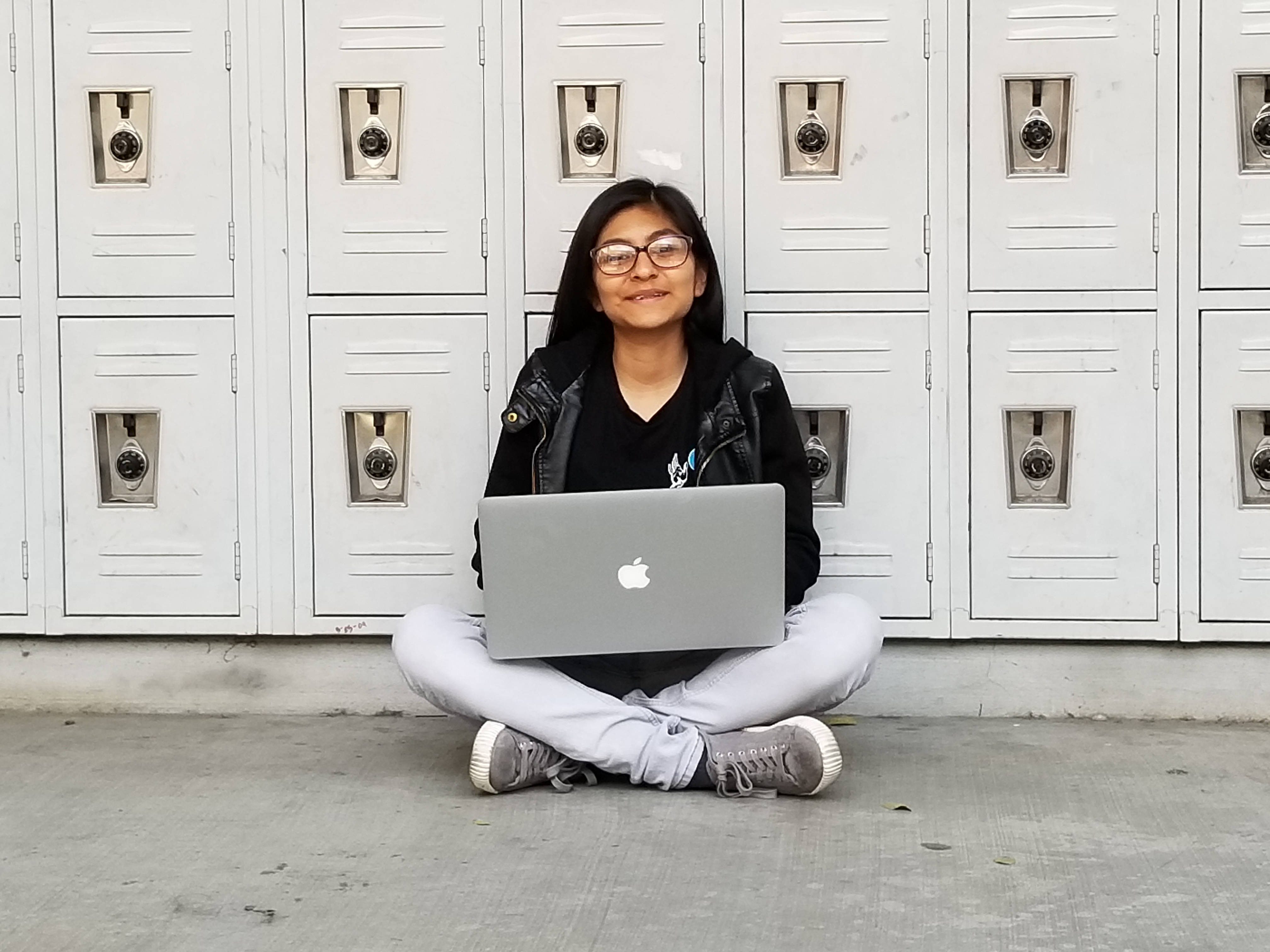
Student Voice Research
Director of Research & Principal Investigator; University of California, Los Angeles
Funded by: the National Science Foundation, Bill & Melinda Gates Foundation, and Google CS-ER
In an effort to keep equity at the center of “Computer Science for All” efforts across the nation, this project seeks to understand the interactions between structural inequalities (access to courses, teachers), belief systems (stereotypes about what type of student can excel in CS), classroom pedagogy, and larger educational policies impacting which students do (and do not) learn computer science. In research-practice partnership with school district leaders, administrators, educators, and students, we are focusing on students’ perspectives about what matters most for their sense of engagement, agency, and identity with computing. This project is taking place in a majority urban, low-income, Latinx school district in California, Chicago, and in majority African American, rural schools in Mississippi. We hope our work together will amplify students’ voices toward informing efforts to broaden participation in computing. This work began during the 2018-19 school year and longitudinally follows students’ experiences from 9th grade to now college and beyond.
To learn more, please visit this website.
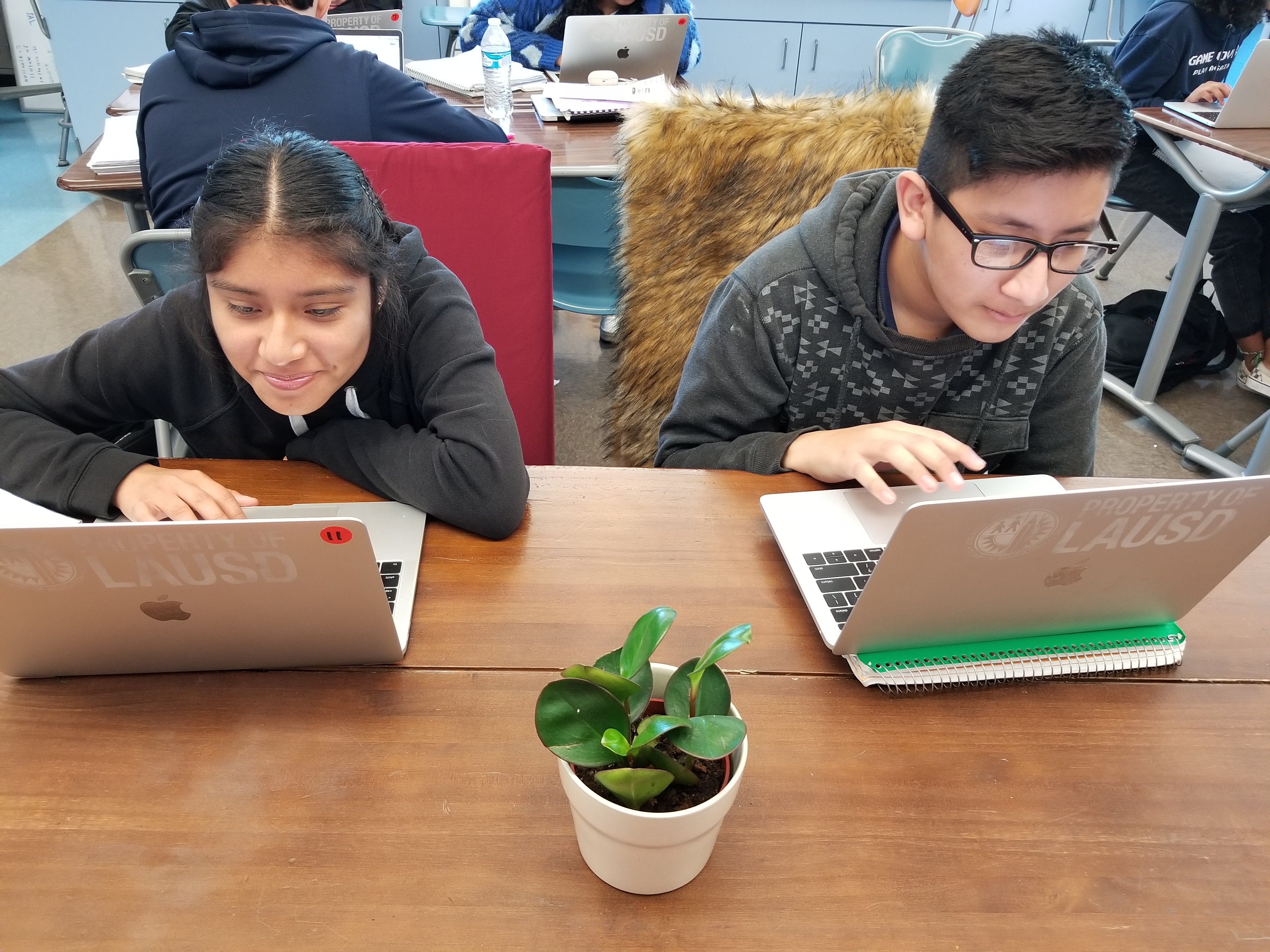
“Supporting Computer Science Access, Leadership and Equity in California (SCALE-CA)”
Director of Research & Co-Principal Investigator; University of California, Los Angeles
Funded by: the National Science Foundation
Our UCLA Center X Computer Science Equity Project Team was awarded a four-year $2M National Science Foundation grant to create a Networked Improvement Community (NIC) to scale teacher professional development, build the capacity of education leaders for local implementation, and contribute to the research base on expanding equity-minded computer science (CS) teaching and learning opportunities across the state. California is the sixth largest economy in the world and a “majority minority” state with over 60% of its six million public school students identifying as students of color. The state’s size and diversity require a systemic approach to increasing CS opportunities for low-income students, Latinx, African American and Native American students, English language learners, and students with special needs. The focus of this project is to build leadership capacity to ensure that equity is kept at the core of CS education expansion efforts and to ensure those efforts involve interventions that are scalable and sustainable.
To learn more, please visit this website.
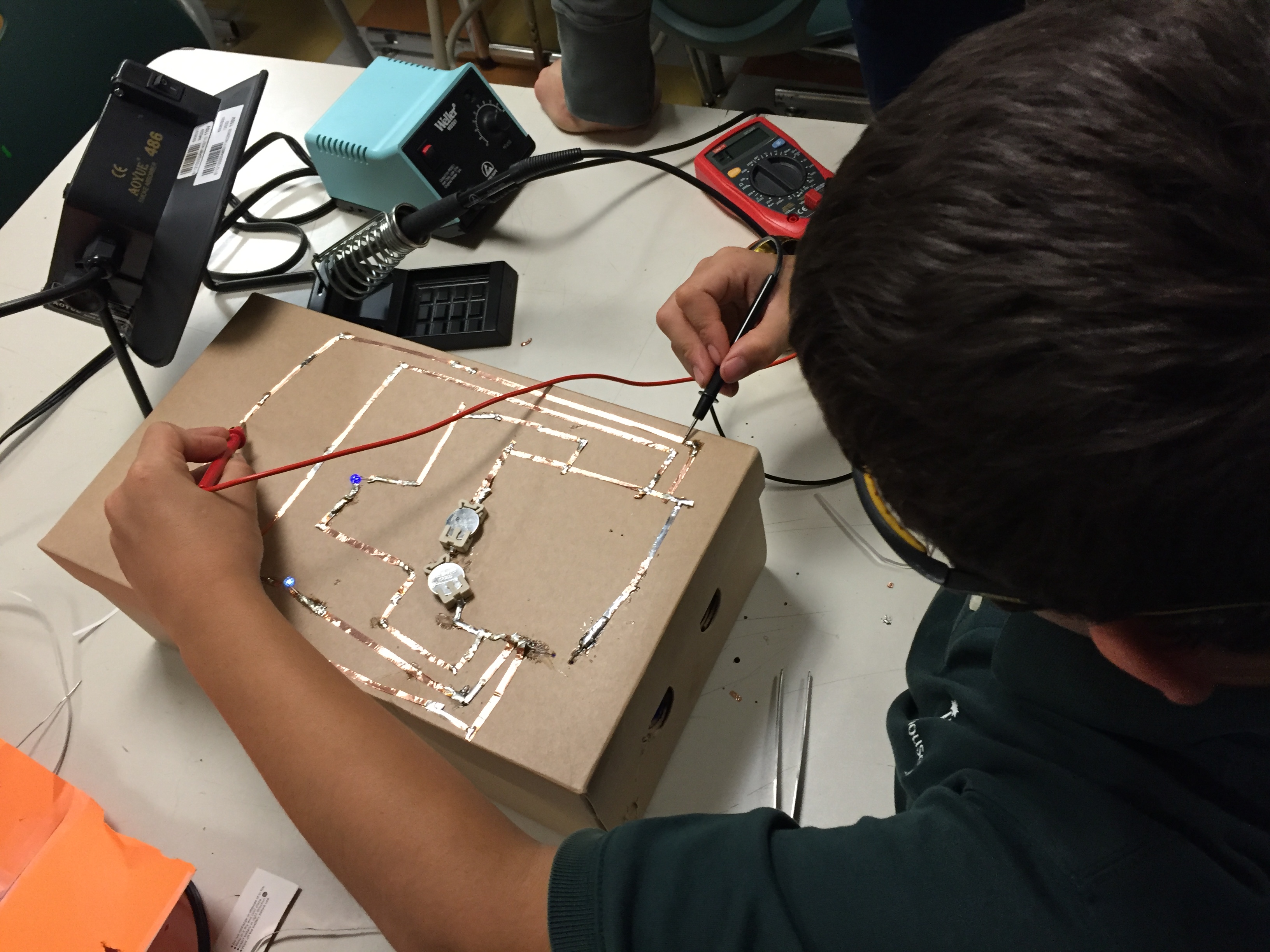
“Understanding the CS Equity Impacts of LAUSD’s K-8 Professional Development”
Principal Investigator; University of California, Los Angeles & Los Angeles Unified School District
Funded by: Google CS-ER
Recognizing that computer science (CS) is a form of power woven tightly into the fabric of structural inequalities impacting youth, the Los Angeles Unified School District (LAUSD) has committed to ensuring CS enrollment reflects their majority-minority demographics in this second largest district in the nation, with all students receiving computing instruction by 2025. Despite nearly 3-million dollars’ investment in increasing professional development (PD) offerings and reach through PDs that will remain virtual after the pandemic is over, LAUSD has been unable to study the impacts of their newer CS PDs, especially on the equity perspectives of K-8 educators charged with increasing access to computing education. Building on two decades of partnership, UCLA+LAUSD propose to administer surveys and interviews to understand what K-8 educators: 1) learn related to equity and computing in LAUSD’s PDs; 2) implement after PDs; and 3) find most/least helpful in online PDs.
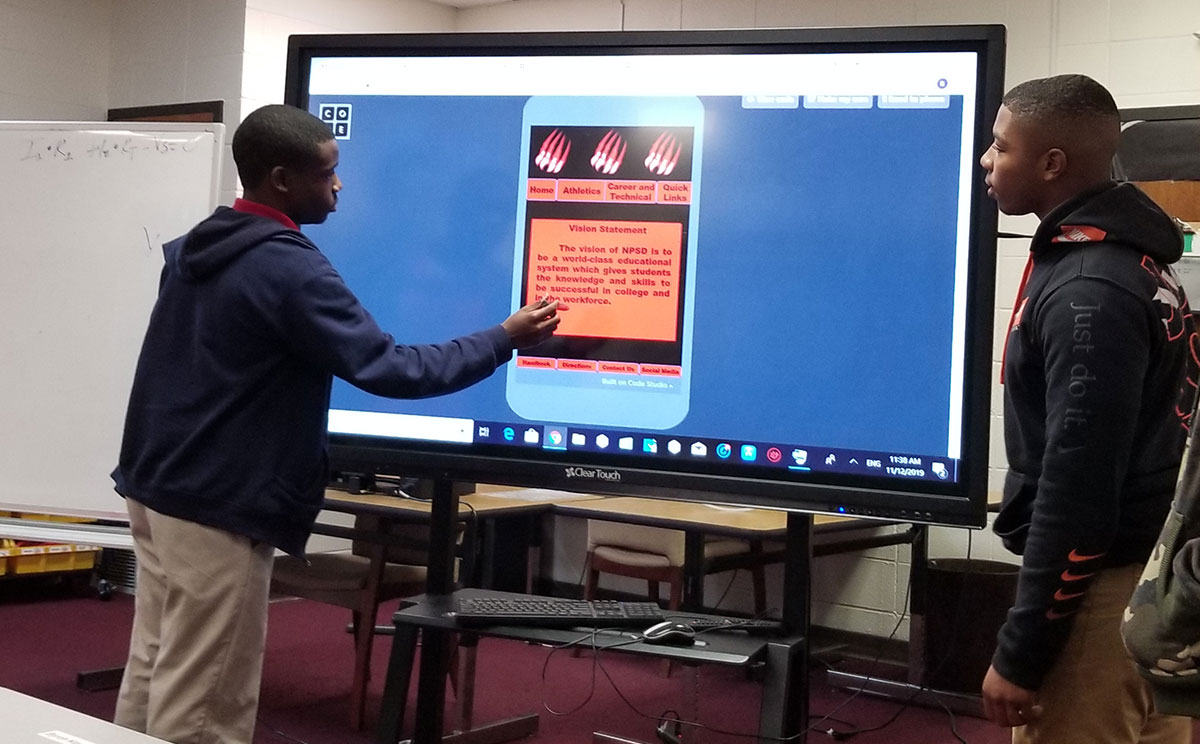
“Reclaiming Digital Futures”
Associate Researcher; University of California, Irvine
Funded by: The Susan Crown Exchange
This collaborative project brought together researchers and educators/leaders from organizations including AS220 Youth, Beam Center, Digital Harbor Foundation, DreamYard, FreeSpirit Media, the Knowledge House, Western Michigan Center for Arts and Technology, and YOUmedia at Chicago Public Library. Together we sought to create resources that share knowledge and best practices for supporting success in youth-centered digital learning.
I published four briefs for the project, including: “Sandboxes, studios, and ladders: Comparative program structures in out-of-school digital learning organizations,” “The space for creativity,” “Not just a flyer: Rethinking youth recruitment into out-of-school making, media, and computing programs,” and “Peer-to-peer professional learning around informal digital learning.”
To learn more and check out our toolkit, please visit this website.

“MAKEval”
Associate Researcher; Indiana University School of Education
Funded by: Google
While researchers advance work in understanding various aspects of Makerspaces and the increase of Making in education, there is a lack of robust tools that can be used for research and evaluation of these experiences. This project involves creating suites of tools—including surveys, assessments, and observation protocols—that provide educators, researchers, and program administrators with information to evaluate Maker programs/experiences with youth. The five key target areas of evaluation, based on formal and informal maker educators’ survey and interview data, include: creativity/problem solving, critical thinking, problem solving, attitudinal changes, agency/independence, and involvement in science and engineering practices.
To learn more, please visit this website.
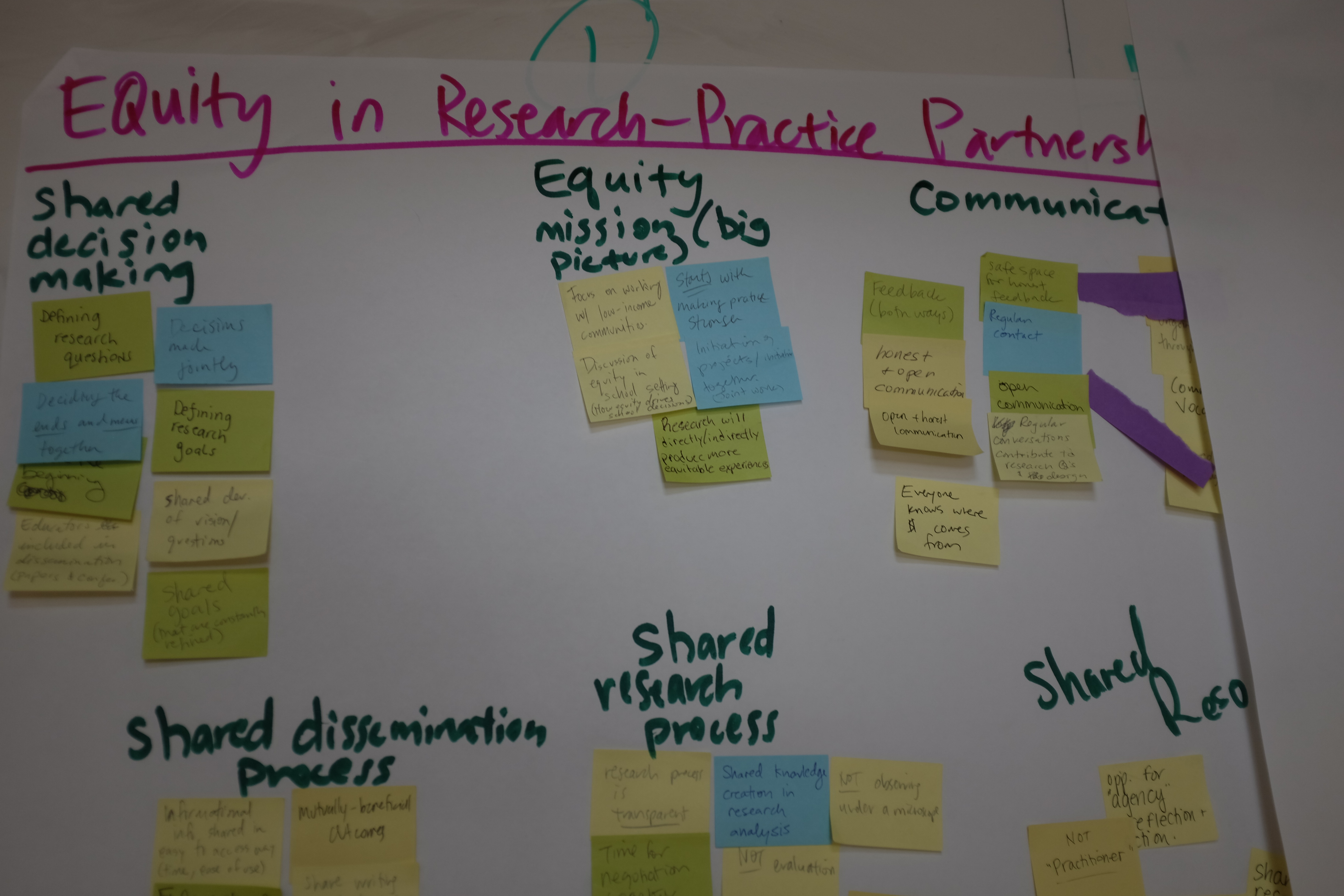
“Research + Practice Collaboratory”
Researcher and Co-Principal Investigator of Exploratorium efforts; Collaboration between the Exploratorium of San Francisco; University of Washington, Seattle; University of Colorado, Boulder; and the Education Development Center
Funded by: the National Science Foundation
Too frequently, educational research is conceived and designed in isolation from teaching practice. Furthermore, communities of research and practice have distinct cultural norms, languages, and routines that can get in the way of productive communication. The Research + Practice Collaboratory experiments with ways to support mutual cultural exchange between these communities, in order to produce new insights and strategies for tackling pressing problems in Science, Technology, Engineering, and Mathematics (STEM) education.
To learn more, please visit this website.

“The California Tinkering Afterschool Network”
Senior Researcher & Director; Collaboration between the Exploratorium of San Francisco, Techbridge of Oakland, Discovery Cube, Community Science Workshop of Fresno, and Environmental Science Workshop of Watsonville
Funded by: the National Science Foundation & S.D. Bechtel, Jr. Foundation
There is growing interest in how Making and Tinkering can support Science, Technology, Engineering, and Mathematics (STEM) learning, especially in afterschool contexts. This project brought together a research-practice partnership seeking to understand what learning looks like for youth historically underrepresented in STEM fields when afterschool Making and Tinkering programs focus on equity-oriented pedagogical practices, and what professional development supports informal educators need to build and sustain such programs. Together, our partnership created a series of resources for educators as well as publications related to our project.
To learn more, please visit this website.
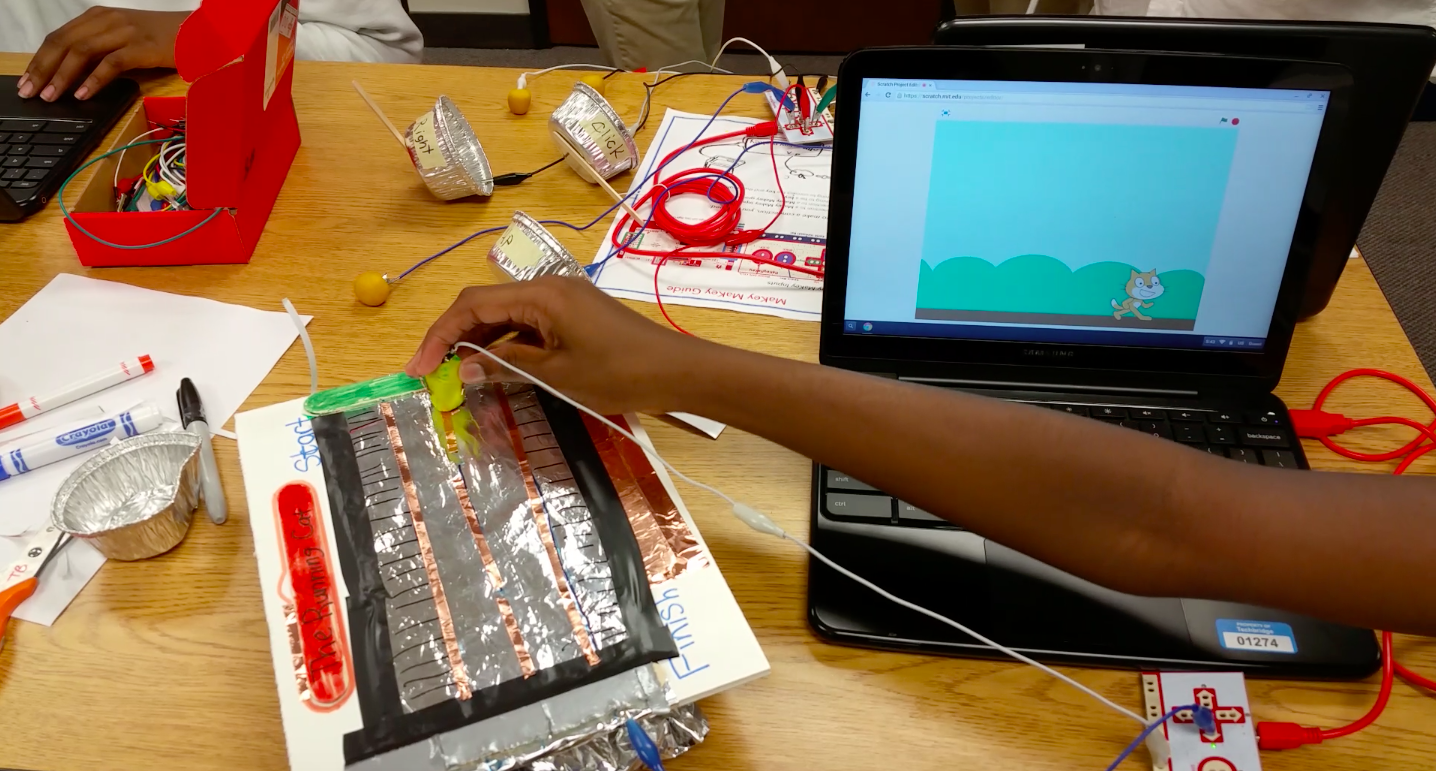
“Exploring Computer Science Project”
Researcher, Postdoctoral Research Fellow; University of California, Los Angeles
Funded by: the National Science Foundation
The Exploring Computer Science Project is dedicated to democratizing access to computing education for all students. For over a decade, our team has been researching the state of computer science education while developing evidence-based high school computer science curricula and teacher professional development programs. The introductory high school course we created (“Exploring Computer Science”) was first piloted in 6 schools in the Los Angeles Unified School District in 2008. Since then, the course has rapidly expanded to 25 states in the US and Puerto Rico, including the seven largest school districts in the nation.
To learn more, please visit this website.
